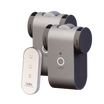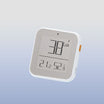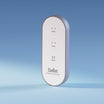The advancements in AI technology are already transforming the way we live our lives, and with the continued development of smart homes, we are set to experience a revolutionary change in the way we interact with our living spaces. The integration of AI technology in smart homes will enable us to automate and optimize many of our daily tasks, making our lives easier, more efficient, and more comfortable.
One of the most significant benefits of AI-powered smart homes is their ability to learn and adapt to our behavior and preferences. With the help of sensors, cameras, and other smart devices, AI systems can track our daily routines and adjust our home's temperature, lighting, and other settings according to our needs. For example, if we prefer to wake up to natural light, our smart home can automatically open the blinds to let in sunlight as soon as it detects the first rays of dawn. Similarly, if we prefer a cooler temperature at night, our smart home can automatically adjust the thermostat to create the perfect sleeping environment.
Another significant advantage of smart homes is the increased level of security they provide. With AI-powered security systems, homeowners can monitor their homes remotely, receive real-time alerts, and even use facial recognition technology to identify intruders. This increased level of security can help to reduce crime and give homeowners peace of mind when they are away from home.
Smart homes also have the potential to improve our health and well-being. AI systems can monitor our sleep patterns, track our exercise routines, and even suggest healthy meal plans based on our dietary requirements. This technology can help us to lead healthier lifestyles, prevent illnesses, and manage chronic conditions more effectively.
Furthermore, smart homes can also help to reduce our carbon footprint and conserve energy. AI systems can monitor our energy usage, identify inefficiencies, and suggest ways to reduce our consumption. For example, our smart home can detect when we leave a room and automatically turn off the lights to save energy. Additionally, smart homes can integrate with renewable energy sources, such as solar panels, to reduce our reliance on non-renewable energy sources.
In conclusion, the future of smart homes powered by AI technology holds tremendous potential to transform the way we live our lives. With the ability to learn and adapt to our behavior and preferences, increase security, improve our health and well-being, and conserve energy, smart homes have the potential to make our lives easier, more efficient, and more comfortable. As this technology continues to develop, we can expect to see even more innovative ways that AI can enhance and improve our daily lives.





















Leave a comment
All comments are moderated before being published.
This site is protected by reCAPTCHA and the Google Privacy Policy and Terms of Service apply.